Progress in Mainstreaming Research as the basis for Communities’ Collective Action in Conflict Transformation and Peacebuilding
By: Godfrey Okoth MA,
The field of conflict transformation has increasingly emphasized the centrality of relations between parties and processes to capture the complex interconnectedness that shapes the peacebuilding milieu. Community participation has undoubtedly become a key pillar in the continued sustainability of peace dividends. Moreover, constant community participation enables the improvement of community ownership of peacebuilding processes and strengthening the structural architecture towards effective locally-driven peacebuilding. The sensitive nature of conflict, however, calls for the necessity of verifiable data as crucial support to the community’s agility in seeking solutions to conflict issues that affect locally.
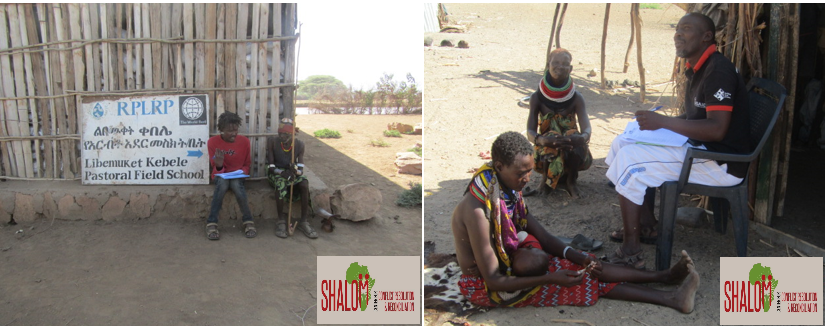
In its intervention methodology, Shalom-SCCRR has gone a notch higher to undertake an initiative to establish not only the group of well-trained influential opinion shapers but also a structured local institutional framework that ensures the availability of consistent accurate data which informs the peacebuilding interventions that are adopted by the opinion shapers.
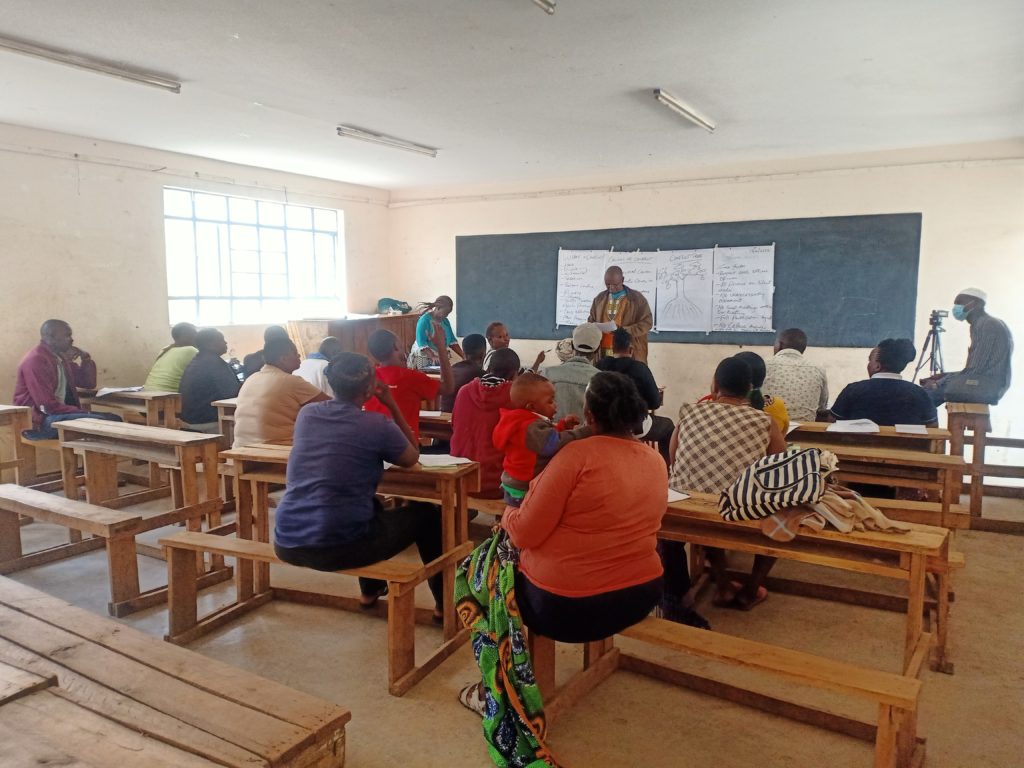
The intervention methodology has entailed constituting a locally coordinated institution of highly influential and committed local community opinion shapers who, courtesy of their skills acquired through training, provide the human resource needed to facilitate peacebuilding action plans both within the community and with other ethnic communities. The structured institution collects, verifies, and relays real-time data on latent and overt conflict incidences to Shalom-SCCRR’s Monitoring, Evaluation, and Research team. After meticulously processing and professionally analyzing the data, this team produces conflict status reports which are then disseminated back to the community opinion shapers to inform their timely activation of immediate, intermediate, and long-term conflict intervention initiatives.
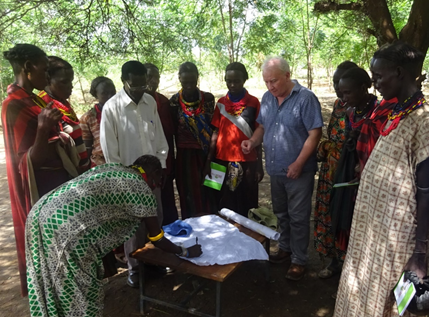
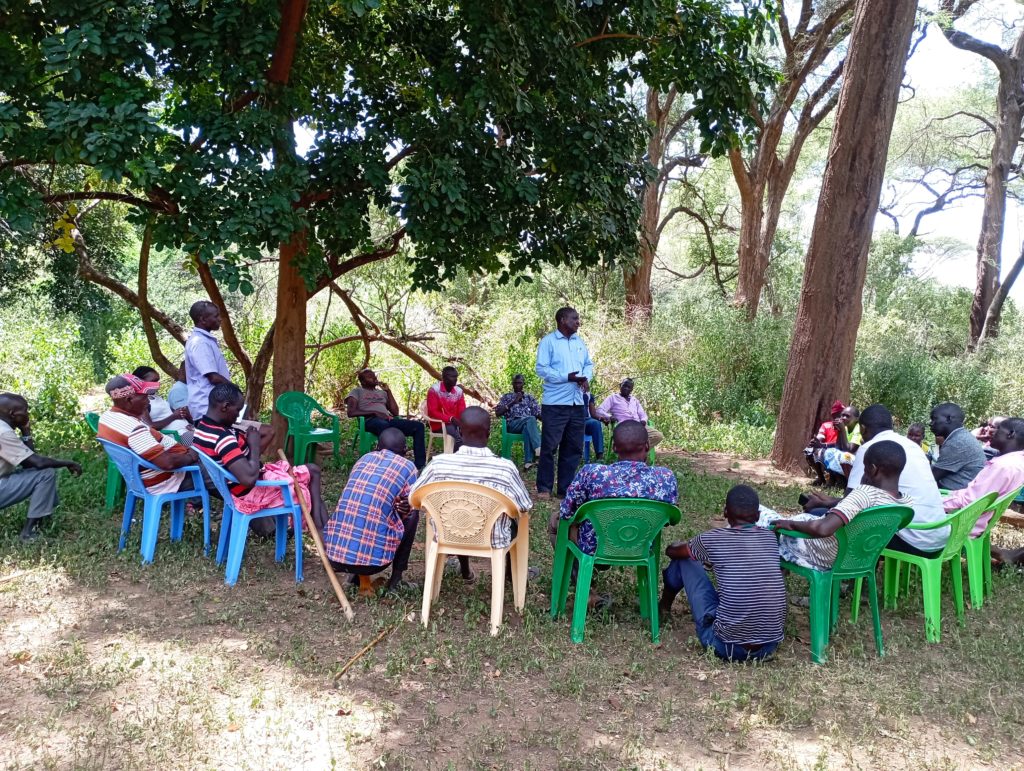
Shalom-SCCRR has established 23 such groups/institutions across the various conflict environments where we work. The 23 groups comprise a total of 105 well-trained and certified community resource people who by virtue of being resident members of the communities they serve have become quite dependable in conflict monitoring, data collection and community animation. Through close guidance by Shalom’s professional project team, the resource people have developed a strong capacity to handle conflict-sensitive data and use it appropriately to inform their decision making on the choice of conflict intervention techniques that suits a situation.
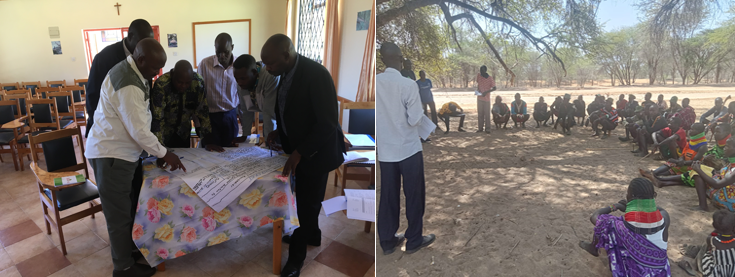
This functional structure has significantly boosted timely response to conflict, thus helping prevent disputes that would have otherwise turned fatal. Furthermore, the frequency of interethnic interactions has also increased. The teams from both sides of the conflict divide have since adopted a regular meeting system to familiarize themselves with the conflict situation as well as the state of peace.
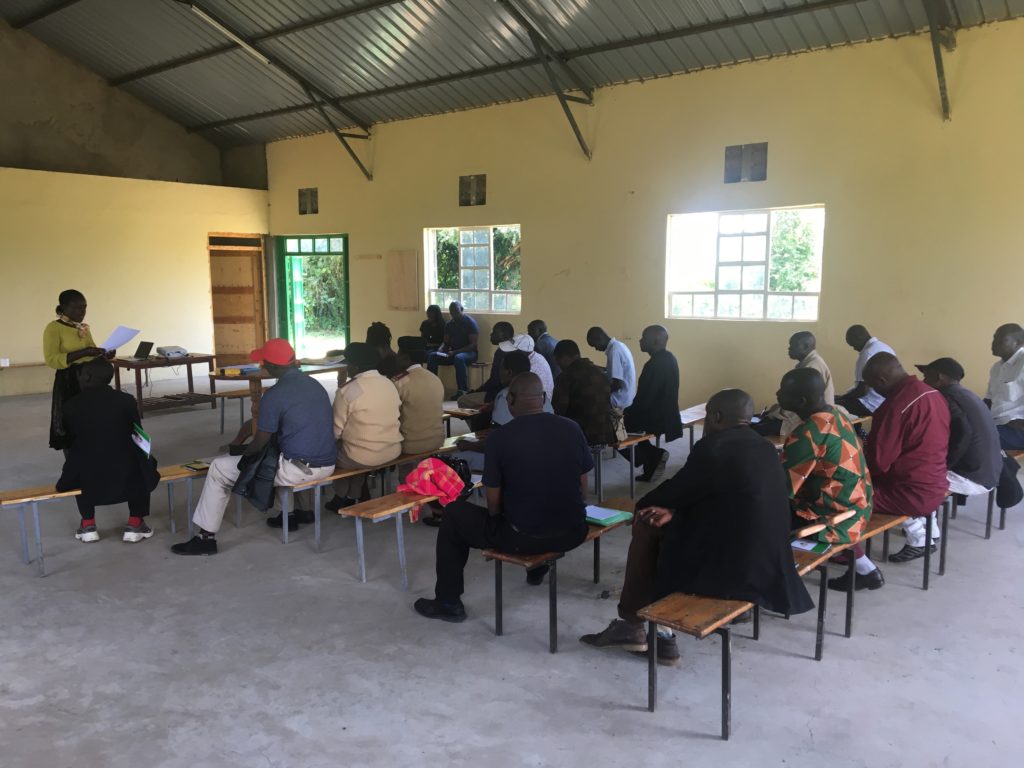
The collective action achieved through Shalom established community leadership has enabled the ease of stakeholder coordination on security-related matters between the community and their local duty bearers, particularly the government. The leaders have been instrumental in supporting community mobilization efforts towards community-driven advocacy by facilitating the setting of the peacebuilding plan and presentation of the same to local government leaders for action.

Data-driven peacebuilding has been a critical instrument in the success of collective action towards ensuring the reduction of conflicts among Shalom-supported communities. By availing credible information to them, community leaders have demonstrated more confidence and commitment, thus making tremendous progress in being self-driven and motivated to be the frontline agents in determining their peaceful future.
Author: Godfrey Okoth MA, Shalom-SCCRR Senior Project Officer
Click on the links below for more elaborated details of Shalom-SCCRR’s work:
Shalom-SCCRR. (2022). 2009-2021 Shalom-SCCRR Results and Achievements. https://shalomconflictcenter.org/2009-2021-shalom-sccrr-results-and-achievements/
Prof. Wanakayi K. O. (2020). An understanding of the work of Shalom-SCCRR: https://shalomconflictcenter.org/wp-content/uploads/2021/02/AN-UNDERSTANDING-OF-THE-WORK-OF-SHALOM-SCCRR.pdf
Shalom-SCCRR. (2022). 2021 Shalom -SCCRR Results and Achievements. https://shalomconflictcenter.org/2021-shalom-sccrr-results-achievements/
Moran, M. (2020). Eastern Africa: Shalom-SCCRR receives United Nations (UN) Accreditation. https://shalomconflictcenter.org/3901-2/
Devine, P. R. (2022). Conflict Transformation and Peace-Building across Eastern Africa: Chairman’s Report on Progress in 2021. https://shalomconflictcenter.org/conflict-transformation-and-peace-building-across-eastern-africa-chairmans-report-on-progress-in-2021/
Mwangi, F. (2022).Shalom-SCCRR Empowered Communities Sustaining Peace at the Kisumu-Nandi Borderline during the August 2022 Kenya’s General Elections. https://shalomconflictcenter.org/shalom-sccrr-empowered-communities-sustaining-peace-at-the-kisumu-nandi-borderline-during-the-august-2022-kenyas-general-elections/
Okoth, G. & Mwangi, F. (2022). Shalom-SCCRR Facilitates at AMECEA Forum on Addressing Religious Ideological Extremism in Eastern Africa. https://shalomconflictcenter.org/shalom-sccrr-facilitates-amecea-forum-on-addressing-religious-ideological-extremism-in-eastern-africa/
Okoth, G. (2022). Shalom-SCCRR Mobilizes Intervention towards De-Radicalization and Counter-Violence Extremism on the Kenyan Coast. https://shalomconflictcenter.org/shalom-sccrr-mobilizes-intervention-towards-de-radicalization-and-counter-violence-extremism-on-the-kenyan-coast/
Kibe, E. (2022). Shalom-SCCRR’s International Chairman, Rev. Dr. Patrick Devine addresses the Harvard Kennedy School, USA. https://shalomconflictcenter.org/shalom-sccrrs-international-chairman-rev-dr-patrick-devine-addresses-the-harvard-kennedy-school-usa/
Kibe, E. (2022). Fr. Patrick Devine PhD, Lecture at the National Justice & Peace Network (NJPN) Conference 2022, UK. https://shalomconflictcenter.org/fr-patrick-devine-phd-lecture-at-the-national-justice-peace-network-njpn-conference-2022-uk/
Devine, P. R. (2017). “Radicalization and Extremism in Eastern Africa; Dynamics and Drivers”, published in the Journal of Mediation and Applied Conflict Analysis, 4 (2): http://mural.maynoothuniversity.ie/9086/7/PD-Radicalisation-2017.pdf

